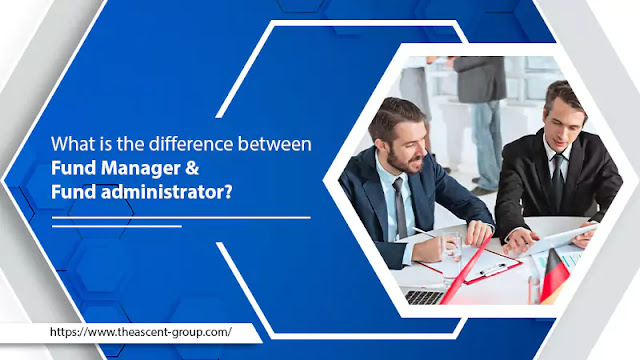Pinpoint The Role of Fund Managers & Fund Administrators in Investment
Efficient funding is the key to running a successful business. It is the foremost requirement to set up and run operations smoothly. Conversely, funds are volatile too, if not instrumented with planning & strategy.
Who are Fund managers?
A
Fund manager is someone who is individually responsible for managing an
investment portfolio. They have been delegated the responsibility for making
investment strategies and handling trading activities in the portfolio.
Usually, fund Managers are masters at channeling the flow of investment
in the right direction and doubling returns. Moreover, the sole motive for
keeping them in the system is to maximize returns for the company.
Role of Fund Managers:
Research
various funds and stocks for recent developments, and earnings announcements,
and generate more funds from potential fraud. Showcasing the success rate of
investments and enhancement of the client's portfolio. Also, create prospective customers, helping them
understand the risk appetite and tolerance corresponding to their financial
goals.
What are Fund
Administrators?
Fund
administrators help users access information relevant to Fund administrator
regulations. They are generally involved in back-end office responsibilities on behalf of the fund's general partners. They process records, books, & financial statements and ensures everyone receive the necessary reports to do the jobs. Hence, it gives you the freedom to focus on investments. With the right blend of technology, you can leverage the fund of fund administrator.
Reduce Cash Flow
When
the asset rises, cash from operations decreases. Cash flow depends on various
factors.
1)
If asset balance rises, cash flow from operations decreases
2) When the liability balance rises, cash flow also
increases
3) When the liability balance falls, cash flow also
decreases.
Reporting Management
It is a systematic technique of supplying the data
management on which the decision-making is based, and it should be in sync with
understanding and stimulating the action.
Tax Management
It
is all about the management of processing money to pay taxes. Many Tax
management companies, among other things, file timely submissions, audit
accounts, TDS, interest, penalties, and executions to avoid proper tax
administration.
Improving the Company's Performance
Thriving businesses in areas in which the company improves allows
owners who want to improve their companies but are short on ideas on where to
start. Fund administration helps a great deal in improving a company's
performance.
Appropriate Valuation
If
you are holding land, a valuation performed by a qualified person not more than
three years before the relevant date would be realized in the open market sale
of a mortgage, hypothec, or charge of anything.
Capital Call Management to Limited Partners
Identification of new Investment partners that require a portion
of limited partners’ pledged capital, drawdowns, or capital calls as issued to
limited partners




Comments
Post a Comment